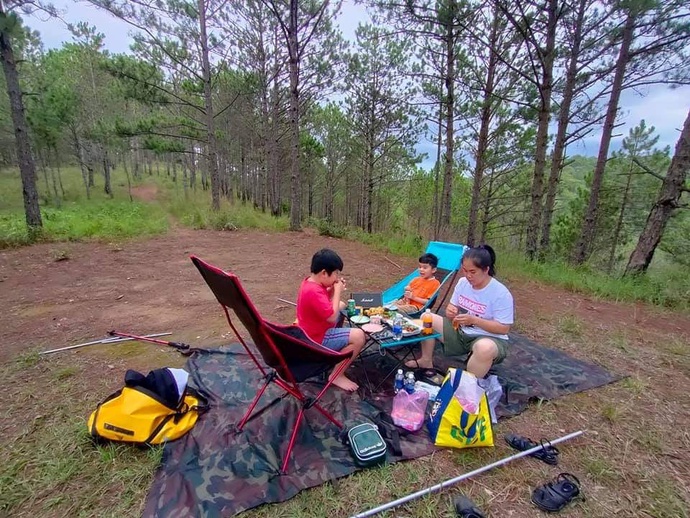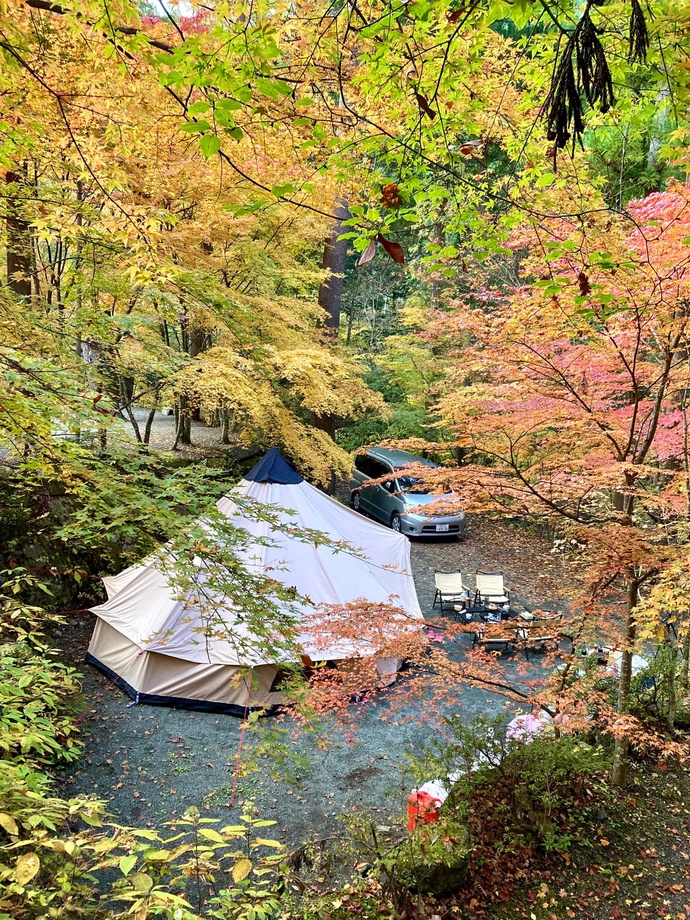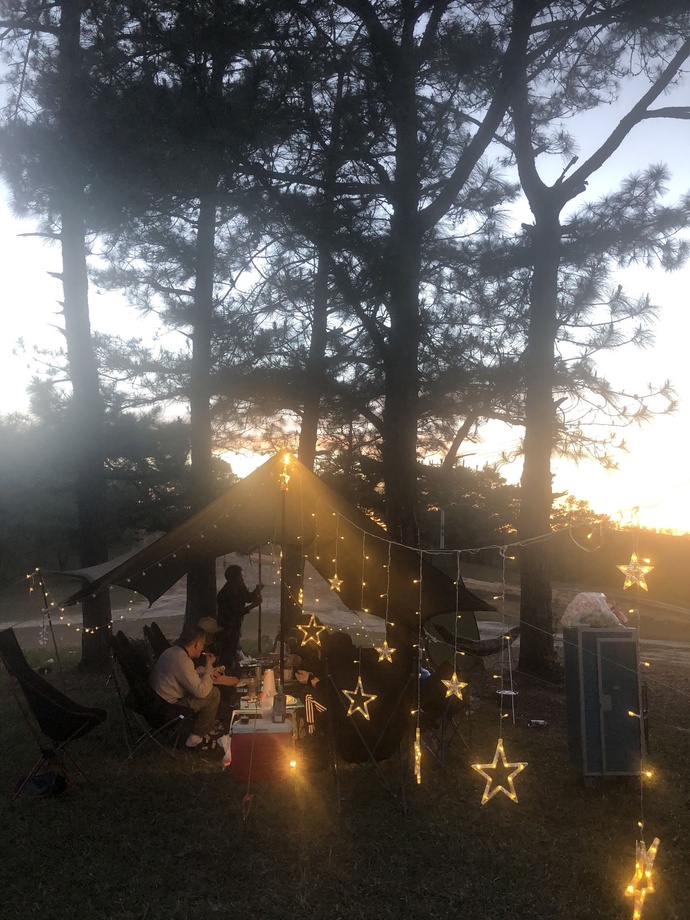In recent years, camping and glamping – a less rugged but more ‘glamorous’ style of camping – have become more and more popular in Vietnam, with the Central Highlands city of Da Lat transforming into a top spot for those who wish to spend a night under the stars.
While camping is often seen as a more rugged way to experience nature, the need to rent or buy equipment is a turn-off for many.
Enter: Glamping, camping’s luxurious cousin, where ‘glampers’ merely need to rent a premium tent and all the amenities of a traditional hotel or resort are just a few steps away.
Nguyen Quoc Thang, 39, had his first experience camping during a school trip in eighth grade.
In 2005, he traveled from the south-central city of Nha Trang to Ho Chi Minh City to buy his first tent.
“It was VND370,000 but it was the only tent in the shop,” Thang recalled. (US$1 = VND22,682)
“Back then I didn’t have many options, but now there are so many different camping gadgets available.
"The options range from cheap to expensive, from new to used equipment.”
There are several companies across the country which offer camping equipment for rent.
“I bought a chair at VND250,000 but I would pay only VND50,000 to rent the same stuff," Thang said.
"My tent, which I bought for VND1.5 million, costs VND300,000 to rent.
“Because I go camping often, it made more sense for me to buy my own equipment.”
In addition to camping trips with his own family, Thang organizes journeys for his friends and their families.
He sees these trips as a way to boost his energy, explaining that even after a whole day of pitching tents, preparing food, and leading a group, he never finds himself exhausted.
For Thang, camping is a retreat from a hard week of work and study.
“Camping teaches my children to be more resourceful," Thang said.
"It teaches them how to be capable people and to observe their surroundings.
“Every time we go camping, my kids let me step into their world.
"They use the time to tell me about their thoughts and observations.”
|
|
| Nguyen Quoc Thang's family members have lunch during a camping trip in Da Lat City under Lam Dong Province, Vietnam. Photo: Q.T / Tuoi Tre |
Thang expects camping in Vietnam to continue to grow in popularity, especially in places with cool weather like Da Lat.
A need to manage campsites
Finding safe and clean campsites is also needed, particularly when the risk of wild camping – including robbery – is existent.
Dao Nguyen Dung, a Vietnamese known for his camping trips with his family in Japan, said camping is still new in Vietnam so the country currently has an inadequate camping infrastructure.
If camping is to continue gaining traction throughout the country, there will be a need for well-planned, fee-based, and well-managed campsites, Dung added.
He developed his interest in camping in 2015 after a camping night in the middle of a national park on the west coast of the United States.
Back in Japan, Dung researched camping and fell in love with this type of outdoor activity.
|
|
| Dao Nguyen Dung and his family camp at the Toyanosawa Auto campsite in Yamanashi Prefecture, Japan in fall 2021. Photo: Nha Sakura |
Meanwhile in Japan, camping became popular in the 1960s and there are currently more than 3,000 official campsites across the country.
According to a camping guide published on the Japan National Tourism Organization’s website, many campgrounds in Japan are free, but most of those with facilities will charge campers who want to stay.
“Some campgrounds charge per person, some demand a flat fee per tent, while others collect a base fee plus additional charges for more people,” it explained.
“In Japan, campgrounds generally come with amenities, including running water and electricity.
“There are usually toilets and sinks, and many are near onsens.”
Camping is growing in popularity amongst tourists, especially young people, according to the Department of Culture, Sports and Tourism of the Central Highlands province of Lam Dong, home to Da Lat.
Campers normally prefer to freely camp in areas near lakes, grassy hills, and pine forests, besides the campsites managed by local resorts.
The department admitted that Lam Dong is currently unable to operate campsites for the public in the same way as countries like Japan and the U.S., but promised to pay attention to the market and look into how to make such campsites meet security, fire prevention, environmental protection, and food safety standards.
|
|
| A group of young people camp on the famous pink grass hill in La Duong Town, Lam Dong Province, Vietnam. Photo: Hong Van / Tuoi Tre |
Like us on Facebook or follow us on Twitter to get the latest news about Vietnam!































